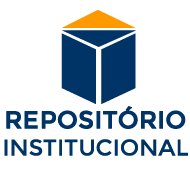Use este identificador para citar ou linkar para este item:
http://aprender.posse.ueg.br:8081/jspui/handle/123456789/295| Título: | O MÉTODO COMUNICATIVO NO PROCESSO DE AQUISIÇÃO DA LÍNGUA INGLESA |
| Autor(es): | Cardoso, Elaine Costa Fraga, Luciana Evelin Inácio Alvim de Rezende |
| Palavras-chave: | Método Comunicativo Competência Comunicativa Habilidades Linguísticas |
| Data do documento: | Mar-2021 |
| Editor: | Universidade Estadual de Goiás |
| Resumo: | presente artigo científico tem como finalidade esboçar reflexões sobre a relevância da Língua Inglesa no contexto atual, através do Método Comunicativo, a partir de três abordagens: competências, habilidades linguísticas e estratégias de ensino. Dessa forma, o objetivo é promover análises críticas de como agregar esse método, no ensino de Língua Estrangeira, a fim de obter uma aprendizagem significativa acerca dos fatores linguísticos e gramaticais. Pode-se afirmar que esse idioma, regulamentado e reconhecido pela (DCE) - Diretrizes Curriculares de Educação Básica, é visto como uma língua universal, com grande ênfase no século XX, com influências em distintas áreas do conhecimento, desenvolvendo percepções reflexivas em vários contextos sociais, e consequentemente facilitando a plena integração do indivíduo na hodiernidade. Além disso, o mesmo não se limita apenas em aspectos sintáticos, mas, indubitavelmente, corrobora com a ampla formação; cultural, social e intelectual. Com o propósito de averiguar a temática e com o intuito de alcançar os objetivos pretendidos, a pesquisa trata-se de uma revisão bibliográfica sobre o método em estudo. Sendo descritiva com uma abordagem qualitativa, que investiga os dados, com fins elucidativos. Em síntese, quando há elementos satisfatórios que comprovam a importância de um segundo idioma, deve-se ter práticas e amparos políticos no ensino aprendizagem, com conteúdos educativos que transcendem o fator gramatical. Importante salientar que, após evidências da magnitude desse idioma, os estudos sistemáticos e a proficiência do mesmo se fazem necessários._________________________________________________________________________________ The purpose of this scientific article is to outline reflections on the relevance of the English language today, through the communicative method, from three approaches: competences, linguistic skills and teaching strategies. In this way, the objective is to promote critical analyzes of how to add this technique, in the teaching of Foreign Language, in order to obtain a meaningful learning about linguistic and grammatical factors. It can be said that this language, regulated and recognized by (DCE) - Curriculum Guidelines for Basic Education, is seen as a universal dialect, with great emphasis on the 20th century, with influences in different areas of knowledge, developing reflective perceptions in various social contexts, and consequently facilitating the full integration of the individual in modernity. In addition, it is not limited to syntactic aspects only, but undoubtedly corroborates with the extensive training; cultural, social and intellectual. With the purpose of investigating the theme and in order to achieve the intended objectives, the research is a bibliographic review on the aforementioned method. Being descriptive with a qualitative approach, which investigates the data, for explanatory purposes. In summary, when there are satisfactory elements that prove the importance of a second language, one must have practices and political support in teaching learning, with educational contents that transcend the grammatical factor. Thus, after evidence of the magnitude of that language, systematic studies and proficiency are necessary. |
| URI: | http://aprender.posse.ueg.br:8081/jspui/handle/123456789/295 |
| Aparece nas coleções: | Artigos científicos |
Arquivos associados a este item:
| Arquivo | Descrição | Tamanho | Formato | |
|---|---|---|---|---|
| Artigo - Elaine Letras.pdf | 481,77 kB | Adobe PDF | Visualizar/Abrir |
Os itens no repositório estão protegidos por copyright, com todos os direitos reservados, salvo quando é indicado o contrário.
